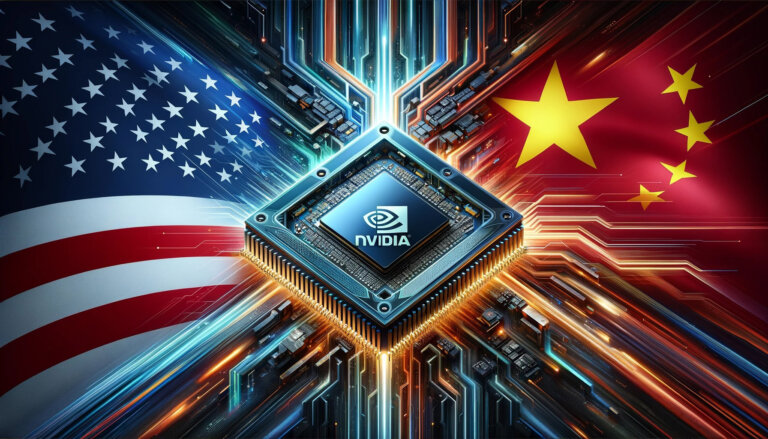 U.S. scrutinizing Nvidia’s China-bound AI chips to ensure compliance
U.S. scrutinizing Nvidia’s China-bound AI chips to ensure compliance U.S. scrutinizing Nvidia’s China-bound AI chips to ensure compliance
AI regulations are in the spotlight as the U.S. assesses Nvidia’s redesigned products for Chinese markets.

Cover art/illustration via CryptoSlate. Image includes combined content which may include AI-generated content.
The U.S. government is examining three artificial intelligence chips created by Nvidia Corp. for the Chinese market to determine if they violate recently enacted export controls, U.S. Secretary of Commerce Gina Raimondo told Bloomberg in a report on Dec. 11.
Raimondo said her agency works closely with Nvidia and other chipmakers to ensure new products adhere to the export rules, stating:
“We look at every spec of every new chip, obviously to make sure it doesn’t violate the export controls … We talk to Nvidia regularly, and I should say they’re a good partner … We have a close working relationship with them. They share information.”
Separate reports indicate that the ban’s scope is limited to advanced AI technology. In a conversation with Reuters, Raimondo said that Nvidia “can, will, and should” sell AI chips to China for commercial use but that the U.S. government aims to prevent sales of the most powerful chips. She said:
“What we cannot allow [Nvidia] to ship the most sophisticated, highest-processing power AI chips, which would enable China to train their frontier models.”
Reports from both sources indicate that Nvidia is willing to cooperate with the U.S. government. Reuters quoted Raimondo, who paraphrased Nvidia CEO Jensen Huang as saying: “Tell us the rules, we’ll work with you.” Bloomberg obtained a statement directly from Nvidia, which affirmed its cooperation with the U.S. and said it aims to offer “compliant data center solutions … worldwide.”
U.S. inspection follows earlier restrictions
The latest news comes after weeks of related developments. On Oct. 13, Reuters reported that the Biden administration planned to reduce foreign access to AI chips. The U.S. Department of Commerce formally announced that it intended to prevent the sale of certain advanced AI chips to China on Oct. 17, and the policy was suddenly enacted around Oct. 24 despite an initially longer deadline.
Nvidia, in turn, pivoted to develop several new chips for the Chinese market, seemingly prompting the latest examination. Raimondo said during a conference the week of Dec. 4 that if a company redesigns a chip around a “cutline” intended to restrict the strength of the device, her agency will “control it the very next day.”













































































































